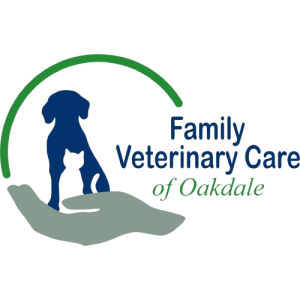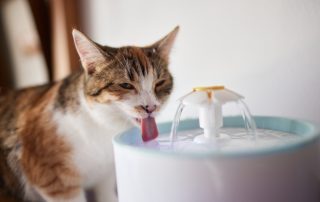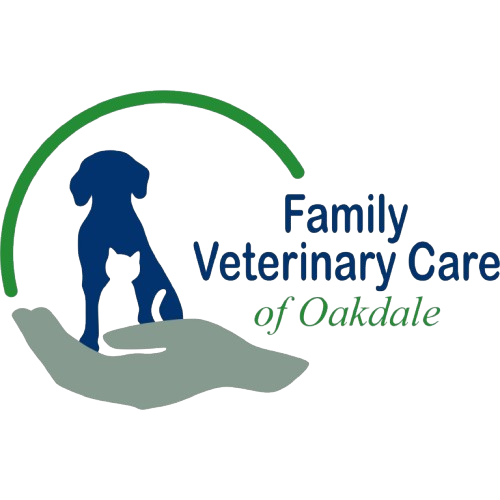Vaccinations
Vaccinations protect your pet against serious, potentially life-threatening diseases and keep the human community safe by preventing zoonotic disease transmission. Vaccinations for your dog may include:
Distemper combination
- Distemper — This disease attacks the respiratory and nervous systems, and is often fatal.
- Hepatitis — Infectious hepatitis is caused by a virus that attacks the liver, and can lead to liver failure if not treated promptly.
- Parvo — Parvo is a highly contagious disease that causes severe vomiting, diarrhea, and dehydration, and is often fatal in puppies.
- Parainfluenza — The parainfluenza virus is one cause of kennel cough in dogs.
Rabies
Bordetella
Canine influenza
Lyme disease
Leptospirosis
Rattlesnake
Vaccinations for your cat may include:
Feline distemper combination
- Feline viral rhinotracheitis (FVR) — FVR, which is caused by a herpesvirus, causes a respiratory infection in cats that can lead to lifelong problems.
- Calicivirus — Calicivirus also causes respiratory infections in cats, as well as painful oral ulcers and joint problems.
- Panleukopenia — Panleukopenia causes a highly contagious gastrointestinal disease in cats that is often fatal.
Rabies
Feline leukemia virus
During your pet’s routine wellness visit, our team may recommend diagnostic screening tests to evaluate internal health and organ function. Screening tests can identify parasites and early disease before your pet gets sick, which can increase treatment effectiveness and potentially add years to your beloved pet’s life. Screening tests that we offer include fecal examinations, heartworm testing, blood profiles, urinalysis, X-rays, and more.
Diagnostic Screenings
Call NowWellness & Preventative Blog
How and Why to Increase Your Cat’s Water Intake
Evolutionarily, cats and their ancestors didn’t need to drink much, because they got most of their water from eating live prey. Now, housecats subsist on dry food diets and need to drink more, but they often refuse. A constant state of low-level dehydration can eventually take a toll, and most [...]
Pet Obesity and Weight Management: A Heavy-Hitting FAQ
Did you know that overweight and obese pets live shorter, lower-quality lives than their lean counterparts? Studies in multiple species—including dogs—show that a reduced food intake keeps your pet lean and extends life expectancy by up to two years. For our pets, who typically live fewer than 15 years, this [...]
Reason for Eating or Drinking Changes in Pets
Your pet’s behavioral changes—including changes in their eating and drinking habits—can provide crucial insights into their overall health and wellbeing. These changes often can be the first indicators of physical or behavioral issues, which is why understanding your pet's habits and recognizing when they change can help you keep them [...]
Allergic Reactions in Pets
Your pet’s immune system can overreact to many environmental allergens, and signs such as itchy skin, a swollen face, hives, gastrointestinal (GI) issues, and trouble breathing can indicate your pet is having an allergic reaction. Our Family Veterinary Care of Oakdale team knows how upsetting watching your pet have an [...]
5 Facts About Rodenticide Toxicity
You are responsible for ensuring that your four-legged friend remains safe and healthy. However, some hazards are easier to spot than others. Rodenticides are commonly overlooked dangers that many households use to control indoor and outdoor rodent populations. Rodenticide toxicity is a serious threat to pets and can cause severe [...]
During your pet’s routine wellness visit, our team may recommend diagnostic screening tests to evaluate internal health and organ function. Screening tests can identify parasites and early disease before your pet gets sick, which can increase treatment effectiveness and potentially add years to your beloved pet’s life. Screening tests that we offer include fecal examinations, heartworm testing, blood profiles, urinalysis, X-rays, and more.
Diagnostic Screenings
Call NowWellness & Preventative Blog
How and Why to Increase Your Cat’s Water Intake
Evolutionarily, cats and their ancestors didn’t need to drink much, because they got most of their water from eating live prey. Now, housecats subsist on dry food diets and need to drink more, but they often refuse. A constant state of low-level dehydration can eventually take a toll, and most [...]
Pet Obesity and Weight Management: A Heavy-Hitting FAQ
Did you know that overweight and obese pets live shorter, lower-quality lives than their lean counterparts? Studies in multiple species—including dogs—show that a reduced food intake keeps your pet lean and extends life expectancy by up to two years. For our pets, who typically live fewer than 15 years, this [...]
Reason for Eating or Drinking Changes in Pets
Your pet’s behavioral changes—including changes in their eating and drinking habits—can provide crucial insights into their overall health and wellbeing. These changes often can be the first indicators of physical or behavioral issues, which is why understanding your pet's habits and recognizing when they change can help you keep them [...]
Allergic Reactions in Pets
Your pet’s immune system can overreact to many environmental allergens, and signs such as itchy skin, a swollen face, hives, gastrointestinal (GI) issues, and trouble breathing can indicate your pet is having an allergic reaction. Our Family Veterinary Care of Oakdale team knows how upsetting watching your pet have an [...]
5 Facts About Rodenticide Toxicity
You are responsible for ensuring that your four-legged friend remains safe and healthy. However, some hazards are easier to spot than others. Rodenticides are commonly overlooked dangers that many households use to control indoor and outdoor rodent populations. Rodenticide toxicity is a serious threat to pets and can cause severe [...]









